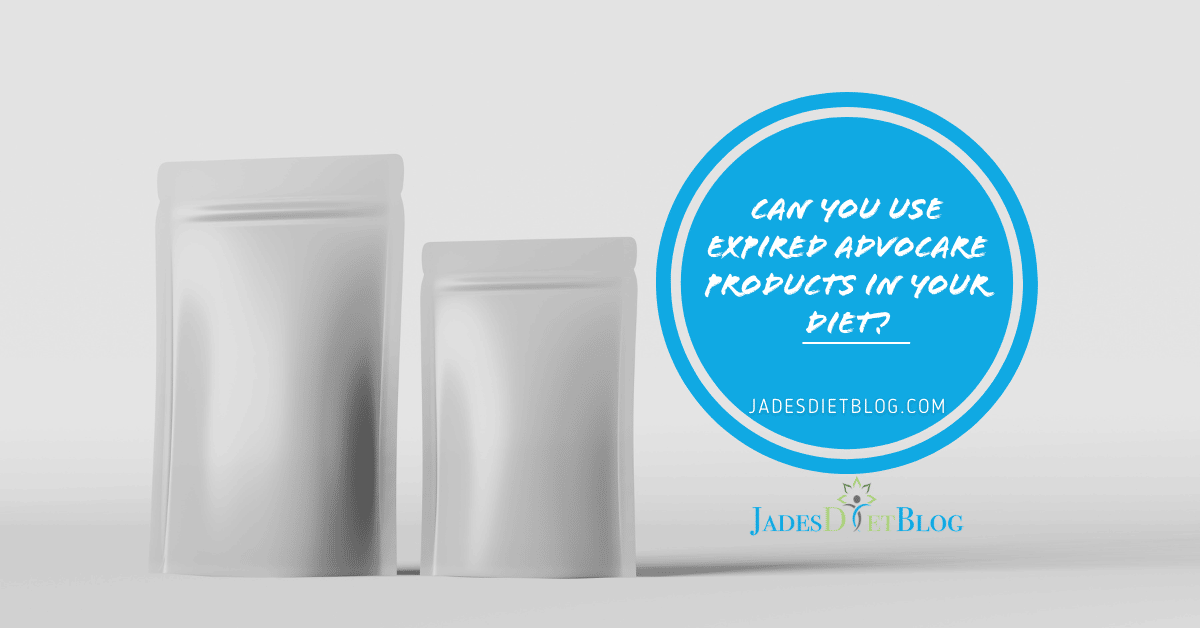Losing weight is an impressive accomplishment that can significantly improve your health and well-being. However, it can also lead to loose skin, which can be frustrating and affect your self-esteem. Loose skin after weight loss is a common problem that many people face, and it can be challenging to know how to tighten it.
There are several ways to tighten loose skin after weight loss, including lifestyle changes, non-invasive procedures, and body-contouring surgery. Making changes to your diet and physical activity can help you lose weight gradually and prevent excessive sagging. Consuming certain nutrients like collagen and performing resistance training can also help tighten your skin. However, it's essential to monitor your weight loss to prevent loose skin and allow your skin to adjust to the loss. If you continue to lose weight rapidly, your skin will continue to lose elasticity.
Contents
Understanding Skin Elasticity

Skin elasticity refers to the ability of the skin to stretch and then return to its original shape. It is influenced by a variety of factors including genetics, age, sun exposure, smoking, and weight changes. When you lose a significant amount of weight, your skin may not be able to keep up with the changes in your body size and shape, and as a result, it may become loose and saggy.
One of the most important factors that determine how well your skin will bounce back after weight loss is the rate at which you lose weight. If you lose weight too quickly, your skin may not have enough time to adjust to the changes, and it may not be able to shrink back to its original size. On the other hand, losing weight slowly and steadily may give your skin enough time to adapt and tighten up as you lose fat.
Another important factor that affects skin elasticity is hydration. Drinking plenty of water can help keep your skin hydrated and supple, which can improve its ability to stretch and bounce back. Additionally, consuming foods that are rich in collagen, such as bone broth and fish, may help improve skin elasticity.
In some cases, non-invasive procedures such as laser treatments, radiofrequency, or ultrasound therapy may help tighten loose skin. However, these treatments may not be suitable for everyone and may come with some risks and side effects. If you have a significant amount of loose skin after weight loss, you may need to consider surgical options such as a tummy tuck or body lift to remove excess skin and tighten up the remaining skin.
Overall, skin elasticity is an important factor to consider when trying to tighten loose skin after weight loss. By losing weight slowly and steadily, staying hydrated, and consuming collagen-rich foods, you may be able to improve your skin's ability to stretch and bounce back. However, if you have a significant amount of loose skin, you may need to explore surgical options to achieve the desired results.
Importance of Hydration
Hydration is crucial for maintaining healthy skin, especially after weight loss. When you lose weight, your skin can become loose and saggy. Proper hydration can help improve skin elasticity and make it look firmer and healthier.
Water Intake
Drinking enough water is the most important way to keep your skin hydrated. The skin contains 30% water, which can be lost through sweat. Therefore, it is essential to drink plenty of water to maintain optimum hydration.
According to Verywell Health, you should aim to drink at least 8 cups of water per day. However, your water intake may vary depending on your activity level, climate, and other factors. It is essential to listen to your body and drink water whenever you feel thirsty.
Moisturizing Products

In addition to drinking water, you can also use moisturizing products to help keep your skin hydrated. Moisturizers can help lock in moisture and prevent water loss from your skin.
Look for moisturizers that contain ingredients like hyaluronic acid, glycerin, and ceramides. These ingredients can help attract and retain water in your skin, making it look plumper and more hydrated.
However, it is important to note that moisturizing products alone cannot replace the benefits of drinking water. Therefore, it is essential to combine both methods to keep your skin hydrated and healthy.
In summary, maintaining proper hydration is crucial for tightening loose skin after weight loss. Drinking enough water and using moisturizing products can help improve skin elasticity and make it look firmer and healthier.
Healthy Eating Habits
Maintaining a healthy diet is crucial for tightening loose skin after weight loss. Eating foods that are rich in certain nutrients can help improve skin elasticity and promote collagen production.
Protein-Rich Foods
Protein is essential for building and repairing tissues, including skin. Consuming protein-rich foods can help improve skin elasticity and prevent sagging. Some examples of protein-rich foods include:
- Lean meats such as chicken, turkey, and fish
- Eggs
- Greek yogurt
- Cottage cheese
- Legumes such as beans and lentils
- Nuts and seeds
It's important to choose lean sources of protein to avoid consuming excess calories and fat.
Vitamin C and E
Vitamins C and E are antioxidants that help protect skin cells from damage and promote collagen production. Collagen is a protein that gives skin its elasticity and firmness. Consuming foods that are rich in these vitamins can help improve skin elasticity and prevent sagging.
Some examples of vitamin C-rich foods include:
- Citrus fruits such as oranges, grapefruits, and lemons
- Berries such as strawberries, blueberries, and raspberries
- Kiwi
- Mango
- Pineapple
Some examples of vitamin E-rich foods include:
- Nuts and seeds such as almonds, sunflower seeds, and peanuts
- Avocado
- Leafy greens such as spinach and kale
- Wheat germ oil
Incorporating these foods into your diet can help improve skin elasticity and promote collagen production, leading to tighter, firmer skin after weight loss.
Regular Exercise

One of the most effective ways to tighten skin after weight loss is through regular exercise. Exercise can help to build muscle and improve overall skin elasticity.
Strength Training
Strength training, also known as resistance training, is a great way to build muscle and tighten loose skin. By lifting weights or using resistance bands, you can target specific areas of the body where you may have excess skin. Focus on exercises that target the major muscle groups, such as squats, lunges, push-ups, and pull-ups.
Yoga and Pilates
Yoga and Pilates are great options for tightening loose skin, as they focus on building strength and improving flexibility. These exercises can help to increase blood flow and oxygen to the skin, which can improve skin tone and elasticity. In addition, yoga and Pilates can help to reduce stress, which is important for overall skin health.
When practicing yoga or Pilates, focus on poses that target the core, such as plank, boat pose, and bridge pose. These poses can help to strengthen the muscles in the abdomen and back, which can help to tighten loose skin in these areas.
Overall, regular exercise is an important part of any weight loss journey, and can be particularly effective for tightening loose skin. By incorporating strength training, yoga, and Pilates into your routine, you can help to build muscle and improve skin elasticity, leading to a tighter, more toned appearance.
Non-Invasive Treatments
If you are looking for non-surgical options to tighten loose skin after weight loss, there are a few non-invasive treatments that you could consider.
Laser Therapy
Laser therapy is a non-invasive treatment that uses laser energy to stimulate collagen production in the skin. This can help to tighten and firm loose skin, reducing the appearance of wrinkles and sagging skin.
There are several types of laser therapy that can be used to tighten skin, including:
- Fractional laser resurfacing
- Nd laser therapy
- CO2 laser therapy
Laser therapy is generally considered safe and has few side effects. However, it may not be suitable for everyone, and it is important to discuss your options with a qualified healthcare professional.
Ultrasound Skin Tightening

Ultrasound skin tightening is another non-invasive treatment that can help to tighten loose skin after weight loss. This treatment uses ultrasound energy to heat the deeper layers of the skin, stimulating collagen production and tightening the skin.
There are several different types of ultrasound skin tightening treatments available, including:
- Ultherapy
- HIFU
- Thermage
Ultrasound skin tightening is generally considered safe and has few side effects. However, it may not be suitable for everyone, and it is important to discuss your options with a qualified healthcare professional.
In conclusion, non-invasive treatments such as laser therapy and ultrasound skin tightening can be effective options for tightening loose skin after weight loss. However, it is important to discuss your options with a qualified healthcare professional to determine which treatment is right for you.
Surgical Options
If you have lost a significant amount of weight and have excess skin that is not responding to non-invasive treatments, surgical options may be necessary. These procedures can be expensive and require recovery time, but they can provide the most dramatic and long-lasting results.
Body Contouring Surgery
Body contouring surgery, also known as skin removal surgery, is a popular option for individuals who have lost a significant amount of weight. This procedure involves removing excess skin and fat to reshape and tighten the body. The most common areas for body contouring surgery include the abdomen, arms, thighs, and buttocks.
The most popular body contouring procedures include:
- Abdominoplasty (tummy tuck): removes excess skin and fat from the abdomen and tightens the underlying muscles
- Brachioplasty (arm lift): removes excess skin and fat from the upper arms
- Thigh lift: removes excess skin and fat from the thighs
- Buttock lift: removes excess skin and fat from the buttocks
It is important to note that body contouring surgery is a major procedure that requires general anesthesia and a significant recovery period. Patients should be in good health and have realistic expectations about the results.
Facelift
Facelift surgery, also known as rhytidectomy, is a popular option for individuals who have loose or sagging skin on their face and neck. This procedure involves removing excess skin and tightening the underlying muscles to create a more youthful and refreshed appearance.
Facelift surgery can address a variety of concerns, including:
- Sagging skin on the cheeks and jawline
- Deep creases around the nose and mouth
- Loose skin and excess fat on the neck
Facelift surgery is typically performed under general anesthesia and requires a recovery period of several weeks. Patients should be in good health and have realistic expectations about the results.
Overall, surgical options can provide dramatic and long-lasting results for individuals who have excess skin after weight loss. However, these procedures should only be considered after non-invasive treatments have been exhausted and patients have realistic expectations about the results.
Maintaining Results
After going through the process of losing weight and tightening loose skin, it's important to maintain the results. Consistency in lifestyle and regular check-ups are essential.
Consistency in Lifestyle

Maintaining a healthy lifestyle is key to keeping the skin tight and toned. This includes regular exercise, a balanced diet, and proper hydration. Exercise helps to build muscle, which can help fill out loose skin and improve its appearance. A balanced diet provides the necessary nutrients to keep skin healthy and elastic. Drinking enough water is also important to keep skin hydrated and plump.
Regular Check-Ups
Regular check-ups with a healthcare provider can help ensure that any potential health issues are addressed promptly. This can include monitoring for any vitamin or mineral deficiencies that can affect skin health, as well as detecting any underlying medical conditions that may affect skin elasticity. In addition, a healthcare provider can provide guidance on maintaining a healthy lifestyle and recommend any necessary treatments to maintain the results of skin tightening procedures.
By maintaining a consistent healthy lifestyle and regularly checking in with a healthcare provider, individuals can help ensure that the results of skin tightening procedures are maintained in the long term.






